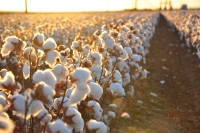 By Patricia Jurewicz, Director, Responsible Sourcing Network
By Patricia Jurewicz, Director, Responsible Sourcing Network
We’re happy to report that for the 2015 cotton harvest, the youngest children ages 7-15 in Uzbekistan were again kept out of the fields! Unfortunately, over a million teachers, nurses, and administrators were forced to pick cotton and this spring they are now having to weed the fields. Responsible Sourcing Network (RSN) is continuing to build the business plan and coalition to launch YESS: Yarn Ethically and Sustainably Sourced. This initiative will create a training and verification system for yarn spinners so brands are certain they have no slave-produced cotton from Uzbekistan in their supply chains.
We are also looking at the broader global problem of modern day slavery and human trafficking and have been commissioned to write a report looking at how markets and corporate power can be brought to halt this heinous practice. With over 21 million people on the planet working under forced labor conditions – twice as many people as were sold into slavery in the Americas during the 1800’s – now is the time to focus major attention on this issue and target coordinated action from companies, investors, and the general public.
And we are still hard at work on conflict minerals from the Congo. For the third year in a row, companies submitted their conflict minerals reports to the Securities and Exchange Commission at the end of May. To highlight the activities companies have taken (or need to take) to have a positive impact in Congolese mining communities, we are analyzing the reports and will release our 2016 Mining the Disclosures report in the fall. See our new infographic on our website: sourcingnetwork.org.











